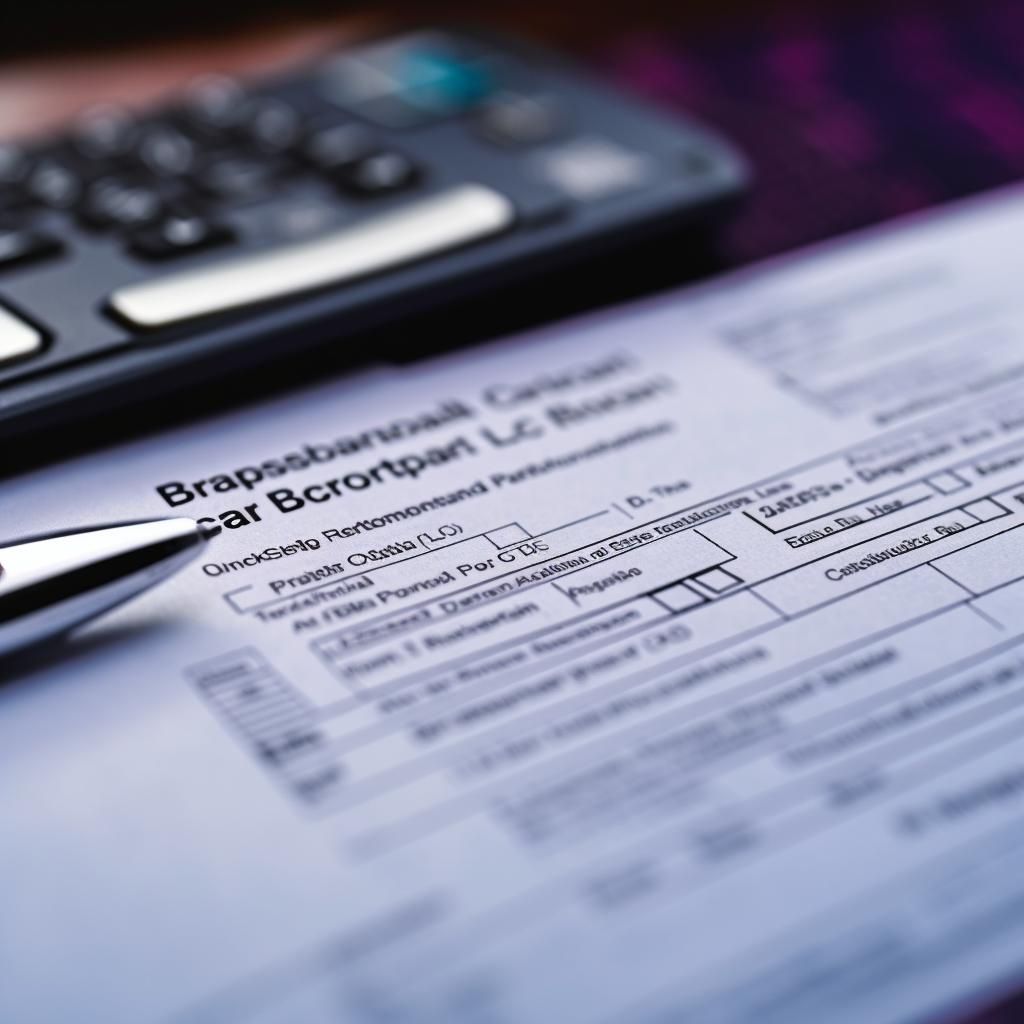.jpg)
Key Takeaway:
- Small businesses play a crucial role in the American economy, and access to credit is essential for their success.
- The Equal Credit Opportunity Act (ECOA) and Regulation B protect small business owners from discrimination based on race, sex, religion, and other characteristics when applying for business loans.
- The Consumer Financial Protection Bureau (CFPB) collects data on lending to minority- and women-owned businesses and provides resources to support small business owners.
Introduction

Photo Credits: Loanblaster.Co.Nz by Dylan Thompson
Small businesses play a crucial role in the American economy. In this section, we’ll delve into the importance of small businesses, the diverse landscape they create, and the challenges entrepreneurs face in obtaining credit for their ventures. Understanding the regulatory measures put in place for business loans is essential in protecting both the businesses and the economy as a whole. Let’s explore how these regulations work and the impact they have on the entrepreneurial landscape.
Importance of small businesses in the American economy
Small-scale enterprises, otherwise known as small businesses, are a real force behind the American economy. These businesses create jobs, bring innovation, and stimulate economic growth. Per the data, there are many of them in the US, emphasizing their importance in various industries. However, entrepreneurs may face challenges when trying to get credit for their projects.
Regulation B and the Equal Credit Opportunity Act (ECOA) are key factors that ensure fairness when it comes to business loans. The ECOA forbids discrimination based on things like race, sex, and religion. Through this, everyone has an equal chance of getting credit. Reg B makes sure these laws are enforced, so businesses have no issues accessing the credit they need without facing any discriminatory practices.
The Consumer Financial Protection Bureau (CFPB) provides help for small business owners through data collection and analysis. They consider minority- and women-owned businesses, discover their specific needs, and explore opportunities within this market. The CFPB also offers resources to help entrepreneurs through the loan process.
Bank loans for small businesses have decreased over time, while alternative lenders have come on the scene. These include peer-to-peer marketplace lenders, borrower-driven broker marketplaces, and balance-sheet lenders. Each has its own set of rules, so businesses must be aware of them when trying to get financing.
Various legal issues can come up with business lending. The loan’s purpose, consumer laws, licensing and usury regulations, and Electronic Signatures in Global and National Commerce Act for electronic contracting are all factors to consider.
In conclusion, small businesses are very important for the US economy. They create jobs, bring innovation, and help the economy grow. Regulations like Reg B and ECOA make sure businesses have equal access to credit. The CFPB supports small business owners by collecting and analyzing data. As the lending landscape changes, entrepreneurs must be mindful of different lenders and their regulations.
Overview of the number and diversity of small businesses in the U.S.
Small businesses are an essential part of the American economy. They create jobs, foster innovation, and drive economic growth. There’s a range of small businesses in the U.S. from mom-and-pop stores to tech startups. They’re the basis of entrepreneurship and business development.
To get an idea of how many and what kind of small businesses there are, we can look at organizations like the CFPB. They collect data on the number and type of small businesses, their location, and the demographic characteristics of their owners.
By analyzing this data, we can get insights into the size and extent of small businesses. We can observe how they’ve grown and where the main concentrations are. We can also see the diversity of the small business community, including gender and race.
This understanding of small businesses helps policymakers and lenders create tailored programs and financial products. This promotes a more inclusive and vibrant small business ecosystem, helping entrepreneurs and the economy.
Challenges faced by entrepreneurs in accessing credit for their businesses
Entrepreneurs face difficulties when trying to get credit for their businesses. They often don’t have enough collateral or a long enough credit history. Banks tend to have strict requirements that make it hard to get loans. Plus, many entrepreneurs don’t know much about finances or the loan process.
Discrimination is a big issue too. Minority groups and women-owned businesses are especially affected. The Equal Credit Opportunity Act bans discrimination, but it still happens.
It’s essential to address these difficulties and make sure everyone has equal access to credit. Policy-makers and banks should work together to create a better environment for entrepreneurs. They should provide resources for financial literacy and make the loan application process easier. This will help entrepreneurs get the credit they need to succeed.
The Equal Credit Opportunity Act and Regulation B

Photo Credits: Loanblaster.Co.Nz by George Hill
The Equal Credit Opportunity Act (ECOA) and Regulation B play a crucial role in regulating business loans, ensuring fairness and prohibiting discrimination based on race, sex, religion, and other characteristics. In this section, we will explore the purpose of the ECOA, the role of Regulation B in enforcing fair lending laws, and how these regulations work to protect borrowers in the world of business financing.
Explanation of the ECOA and its purpose
The Equal Credit Opportunity Act (ECOA) works to ensure fair treatment when giving out credit. It stops discrimination based on factors such as race, sex, religion and more. The aim is to make it equal for everyone who wants a business loan, so that everyone can have the same chances.
Regulation B helps to make sure lenders follow the ECOA by making rules they have to stick to. It requires them to look only at the creditworthiness of the person asking for a loan, not at other factors, like protected attributes. This makes sure the lending process is fair.
The Consumer Financial Protection Bureau (CFPB) also helps small business owners. They look at data to find gaps in access to credit. This lets them know what resources and initiatives they need to help small businesses. All this works together to help small businesses get loans without discrimination.
Prohibition of discrimination in business loans based on race, sex, religion, and other characteristics
The Equal Credit Opportunity Act (ECOA) and Regulation B are essential in stopping discrimination in business loan decisions. The ECOA was established to give everyone, regardless of personal characteristics, the same access to credit. Regulation B backs this up by giving lenders rules to stick to for fair lending. This creates a fair field for small businesses looking for loans, without prejudice.
Moreover, there are extra legal safeguards to stop discriminatory practices when giving out business loans. Lenders must look at legitimate business factors, not just personal characteristics or stereotypes. This means entrepreneurs have the same opportunity to get credit without being treated unfairly.
The Consumer Financial Protection Bureau (CFPB) watches out for signs of discrimination. It collects data on lending to minorities and women-owned businesses, so it can spot any disparities and take action. With this data-driven approach, the CFPB gives business owners the resources and support they need.
Ultimately, Regulation B is the star of the show, making sure lenders don’t discriminate when it comes to business loans.
Role of Regulation B in enforcing fair lending laws
Regulation B is a must for fair lending in the small business market. It stops discrimination, such as race, religion and sex, and enforces the Equal Credit Opportunity Act (ECOA). This regulation means lenders must treat all applicants the same, and cannot consider anything but creditworthiness when deciding to lend.
The Consumer Financial Protection Bureau (CFPB) helps. They collect data on lending to minorities and women. This helps identify disparities in access to credit. The CFPB also provides resources and support to small business owners. This helps them understand their rights and the lending process.
In short, Regulation B is vital for fair lending in the small business market. It stops discrimination and the CFPB helps by collecting data and providing resources. This helps ensure small business owners have equal opportunities nationwide.
The role of the Consumer Financial Protection Bureau

Photo Credits: Loanblaster.Co.Nz by Edward Baker
The Consumer Financial Protection Bureau (CFPB) plays a crucial role in ensuring the protection of small business owners in the realm of business loans. In this section, we’ll dive into how the CFPB collects data on lending to minority- and women-owned businesses, the resources it provides to support small business owners, and how it identifies needs and opportunities for small businesses through data analysis. Get ready to discover how the CFPB works tirelessly to regulate the business loan landscape for your benefit.
Collection of data on lending to minority- and women-owned businesses
To ensure fair lending practices, collection of data on minority- and women-owned businesses is essential. This includes number of loans, amounts, interest rates, and other factors. By analyzing this data, regulators can identify disparities or patterns that may indicate discrimination.
A table can be used to organize the data in a concise manner. It would have columns such as loan recipient demographics, loan amount, interest rate, loan purpose, etc. This visual representation allows for easy comparison and analysis.
The collection of data serves as a valuable resource for small business owners. It helps them understand trends and patterns in lending. Additionally, it provides insights into potential opportunities for targeted support and assistance to guarantee equal access to financing options for all.
CFPB: Helping small business owners navigate financing – ’cause sharks aren’t only in the ocean!
Resources provided by the CFPB to support small business owners
The Consumer Financial Protection Bureau (CFPB) has resources to support small business owners. These tools are designed to help entrepreneurs access credit. The bureau collects data on lending to minority- and women-owned businesses. This allows them to analyze needs and opportunities for small businesses.
The CFPB also offers materials and training programs for small business owners. On their website, you can find resources about credit and financing, managing debt, and common issues faced by entrepreneurs. Plus, they provide training programs to help small business owners understand financial management, consumer protection laws, and borrowing best practices.
Moreover, the CFPB plays a key role in enforcing fair lending laws through Regulation B. This regulation prohibits discrimination in business loans, ensuring equal access to credit opportunities for all entrepreneurs.
Small business owners should take advantage of these resources from the CFPB to navigate the complex landscape of small business lending. This way, they can stay informed about their rights as borrowers and make sound decisions when accessing credit.
Identification of needs and opportunities for small businesses through data analysis
Data analysis can be a great asset for small businesses, granting them insights and opportunities. It allows them to identify their needs and find new growth possibilities. They can use it to understand customer behavior, market trends, and the competitive environment. This facilitates informed decisions, product or service improvements, the correct audience targeting, and successful marketing strategies.
Data analysis also helps small businesses to optimize operations and discover chances that may go unnoticed.
Moreover, it provides the means to spot gaps in the market that can be filled by creative products or services. By studying data patterns and trends, small business owners can detect customer needs or market demands they can tailor their offerings to. This gives them a competitive edge.
Furthermore, data analysis assists small businesses to identify potential risks and address them efficiently. Analyzing historical data and industry trends allows entrepreneurs to predict any challenges or disruptions in their sector. This way, they can plan for contingencies or modify their business strategies to lessen the risks.
Overall, data analysis is essential for small businesses to survive and prosper in the current competitive landscape. It gives entrepreneurs the insights to make strategic decisions, foster innovation, and recognize new opportunities for growth. By making the most of data analysis, small businesses can tackle challenges, and achieve sustained success in the marketplace.
Legal issues in small business lending

Photo Credits: Loanblaster.Co.Nz by Wayne Brown
Legal issues in small business lending—explore emerging lenders, types of lenders in the market, loan purposes, application of consumer laws, licensing, usury regulations, and compliance with the Electronic Signatures in Global and National Commerce Act. Discover how these regulations ensure your protection as a borrower in the dynamic landscape of business loans.
Decrease in bank loans to small businesses and emergence of new lenders
Bank loans to small businesses have significantly declined in recent years. This has opened the door for new lenders, like peer-to-peer marketplace lenders, borrower-driven broker marketplaces and balance-sheet lenders, to cater to this market.
Different loan types may require different legal regulations. Thus, both borrowers and lenders must understand these nuances to ensure compliance with applicable laws.
Online lenders need to be licensed and follow usury regulations to protect borrowers from predatory practices. Electronic contracting is now possible due to technological advancements. The Electronic Signatures in Global and National Commerce Act enables secure electronic transactions between borrowers and lenders. However, compliance is necessary for contract integrity and all parties’ rights.
The decrease in bank loans has created challenges and opportunities for entrepreneurs. It is essential to navigate the complex legal matters of small business lending for consistent and fair practices nationwide.
Types of lenders in the small business market: peer-to-peer marketplace lenders, borrower-driven broker marketplaces, and balance-sheet lenders
When looking for financing for a small business, there are three main types of lenders to consider: peer-to-peer marketplace lenders, borrower-driven broker marketplaces, and balance-sheet lenders.
- Peer-to-peer marketplace lenders: These act as platforms that bridge individual investors with small business borrowers.
- Borrower-driven broker marketplaces: These enable borrowers to find suitable loans by connecting them with potential lenders.
- Balance-sheet lenders: These use their own money to offer loans to small businesses.
Peer-to-peer marketplace lenders can provide competitive rates due to their technology-driven system. Borrower-driven broker marketplaces offer expertise in matching borrowers with the right loan. Balance-sheet lenders have the benefit of more control over the loan process and can customize terms to fit business needs.
Small business owners should understand the advantages and trade-offs of each type of lender. This will help them make an informed decision when it comes to financing. Research and professional advice can also be helpful to find the right fit. Loans and legal regulations are intertwined – don’t forget to explore these different types of lenders!
Purpose of the loan and its impact on legal regulations
Loans have a big impact on the legal regulations and requirements that are relevant to small business lending. Different loan types have laws and regulations that are meant to protect lenders and borrowers. These laws work to ensure fairness and prevent discrimination against people based on characteristics like race, gender, or religion when applying for a business loan. The ECOA and Regulation B are two examples of laws that forbid such discrimination. Also, the CFPB collects data that helps recognize needs and opportunities for small businesses.
It’s essential to acknowledge that some loans have particular legal frameworks, and there are alternative lenders in the small business market. Examples include peer-to-peer marketplace lenders, balance-sheet lenders, and borrower-driven broker marketplaces. Each type of lender may have different regulations or exemptions from traditional banking laws due to their unique nature or funding structures.
Compliance with other consumer protection laws is important for small business lending. This means looking at the purpose of the loan and following consumer laws like the E-Sign Act when using online lending platforms with electronic signatures.
Comprehending the purpose of a loan is important for both lenders and borrowers. This way, all relevant regulations are followed and lending practices are consistent across the United States. Additionally, data analysis and technology provide resources for decision-making and aid small business lending. This helps foster fair and accessible lending experiences for small businesses. So, it’s important to follow consumer laws as they protect businesses.
Application of consumer laws to business-purpose lending
Consumer laws are vital for business-purpose lending. The Equal Credit Opportunity Act (ECOA) and Regulation B prohibit discrimination based on race, sex, religion, etc. Lenders must evaluate loan applications objectively, ensuring equal access to credit.
The Consumer Financial Protection Bureau (CFPB) collects data on lending to minority- and women-owned businesses. They offer resources and support to small business owners. Analyzing data and addressing needs promotes fair and equitable access to credit.
It’s essential for lenders to comply with consumer laws. This includes fulfilling licensing requirements, adhering to usury regulations, and following the Electronic Signatures in Global and National Commerce Act.
To sum up, lenders need to understand and adhere to consumer laws for business-purpose lending. This fosters an environment of fair and equitable access to credit that benefits all businesses.
Licensing and usury regulations for online lenders
Online lenders must have the right licenses to operate legally. Licenses ensure that businesses are trustworthy and protect borrowers from fraud. Plus, they must adhere to usury laws. These laws limit the maximum interest rates on loans. Breaking these regulations can have legal consequences.
Also, online lenders must review and understand the usury laws in each state they operate in. They must make sure loan interest rates don’t exceed the cap. Plus, they may need to follow other requirements from authorities.
The Electronic Signatures Act makes small business lending easier. It says electronic signatures are binding. This makes the lending process smoother for everyone.
Compliance with the Electronic Signatures in Global and National Commerce Act for electronic contracting
The Electronic Signatures in Global and National Commerce Act for electronic contracting is key for small business lending. This act guarantees lenders and borrowers follow the rules for e-signatures for business contracts. It gives an official structure that allows for using e-signatures securely and authentically.
Lenders and borrowers must get it: the legal implications of e-signatures. They need to know the rules for making, doing, and holding digital documents, and get agreement from all parties. Obeying these regulations guarantees that business agreements done electronically are legally binding.
Online lenders who work mainly online have to build strong systems and processes to confirm borrowers’ identity, keep exact records of digital contracts, and protect private data from people who aren’t allowed to see it. If they don’t comply, they could face legal troubles and bad fame for both lenders and borrowers.
The Electronic Signatures in Global and National Commerce Act for electronic contracting is essential, but it’s hard. Working out the federal laws needs attention, technology, and a good knowledge of legal duties. Businesses should take advice from legal pros or look at resources from organizations such as the Consumer Financial Protection Bureau (CFPB) to meet these regulations.
Conclusion: Finding the right way to comply with small business lending laws can be tough, but the right tech and data can help us keep borrowers safe and the lending game strong!
Conclusion

Photo Credits: Loanblaster.Co.Nz by Jose Johnson
In the Conclusion, we’ll wrap up our exploration of how business loans are regulated for your protection. We’ll discuss the legal issues surrounding small business lending, the importance of navigating these issues for consistent lending nationwide, and the role of technology and data in facilitating this process. Stay tuned to gain a comprehensive understanding of the regulatory landscape and its impact on business owners like you.
Overview of the legal issues involved in small business lending
Navigating legal issues in small business lending is essential for ensuring compliant and ethical practices. Challenges in accessing credit from traditional banks have led to the emergence of new lenders, such as peer-to-peer marketplace lenders, borrower-driven broker marketplaces, and balance-sheet lenders. Each of these lenders follows their own regulations and requirements.
The purpose of the loan also affects the legal considerations. Regulations differ for business and consumer loans. Online lenders must comply with specific licensing and usury regulations, as well as the Electronic Signatures in Global and National Commerce Act.
Therefore, legal considerations in small business lending include:
- Challenges faced by entrepreneurs
- Regulations for business and consumer loans
- Licensing and usury regulations for online lenders
- Electronic Signatures in Global and National Commerce Act
Importance of navigating these issues for consistent lending nationwide
Consistent lending practices across the country are essential for small businesses. To provide fair access to credit for entrepreneurs, lenders must navigate the legal issues of small business lending. This guarantees businesses, regardless of size or location, have an equal chance to get the funding they need.
Why manage these matters? To enforce fair lending laws. The Equal Credit Opportunity Act and Regulation B stop discrimination based on race, sex, and religion. By understanding and following these regulations, lenders can avoid any discriminatory lending practices and offer fair chances to all small business owners.
Also, effectively managing legal issues in small business lending helps create a diverse and inclusive economy. The CFPB collects data on lending to minority- and women-owned businesses. Analyzing this data lets lenders identify needs and opportunities in underserved communities. This enables them to adjust their lending practices accordingly and support the growth of diverse businesses throughout the country.
To successfully navigate these issues, lenders may consider a few pointers. It’s important to stay up-to-date on regulatory changes and compliance requirements related to small business lending. This guarantees they are operating within the boundaries of the law.
In addition, technology and data analysis tools can be beneficial for consistent and fair lending practices. Advanced analytics allow lenders to assess creditworthiness objectively and make informed decisions when evaluating loan applications. This cuts down the risk of discriminatory practices while providing efficient processes for both borrowers and lenders.
Overall, navigating legal issues in small business lending is key for consistent lending nationwide. By following regulatory guidelines, analyzing data on minority- and women-owned businesses, and leveraging technology, lenders can provide equal access to credit while supporting diverse entrepreneurship across America.
Role of technology and data in facilitating small business lending
Technology and data are key in today’s digital age for small business lending. Tech has revolutionized the loan application process, making it more efficient and accessible. Data analytics helps lenders assess creditworthiness with real-time info and make informed decisions.
This tech integration boosts the efficiency of the lending process and contributes to fair lending practices. Lenders can now collect and analyze data on lending patterns to spot any disparities or discriminatory practices.
Tech has also opened up new funding sources outside of traditional banks. Online platforms like peer-to-peer marketplace lenders and borrower-driven broker marketplaces match borrowers with potential lenders.
Technology and data have truly revolutionized the lending landscape for small businesses. They streamline the loan application process, make lending practices fairer, and open up a world of alternative funding options. With tech, entrepreneurs can access the capital they need to succeed.
Some Facts About How Business Loans are Regulated for Your Protection:
- ✅ Small businesses account for more than 99.9% of all businesses in the U.S. (Source: Team Research)
- ✅ Minority-owned businesses make up 18.3% of businesses with employees in the U.S. (Source: Team Research)
- ✅ Women-owned businesses make up 19.9% of businesses with employees in the U.S. (Source: Team Research)
- ✅ The Equal Credit Opportunity Act (ECOA) prohibits lenders from discriminating based on race, sex, religion, and other characteristics in business loans. (Source: Team Research)
- ✅ The Consumer Financial Protection Bureau (CFPB) collects data on lending to minority- and women-owned businesses to enforce fair lending laws. (Source: Team Research)
FAQs about Behind The Scenes: Exploring How Business Loans Are Regulated For Your Protection
What is the Truth in Lending Act (TILA) and how does it regulate business loans?
Answer: The Truth in Lending Act (TILA) is a federal law that requires lenders to provide clear and accurate information about the terms and costs of credit to borrowers. While TILA primarily applies to consumer credit, it can also apply to business-purpose loans in certain cases. Lenders may choose to make TILA disclosures for business loans to increase borrower confidence and transparency.
How does the Equal Credit Opportunity Act (ECOA) protect small businesses?
Answer: The Equal Credit Opportunity Act (ECOA) prohibits lenders from discriminating against small businesses based on characteristics such as race, sex, religion, and more. This ensures that all small businesses have fair and equal access to credit opportunities to support their growth and success. The Consumer Financial Protection Bureau (CFPB) collects data on lending to minority- and women-owned businesses to enforce fair lending laws and identify needs and opportunities for small businesses.
What are peer-to-peer marketplace lenders and how do they impact small business lending?
Answer: Peer-to-peer marketplace lenders are a type of online lender that connects borrowers directly with individual investors who are willing to lend money. These lenders use technology and data-driven platforms to facilitate lending. Peer-to-peer marketplace lenders have emerged as an alternative to traditional banks, providing additional options for small business owners looking for financing.
How does lender fee transparency contribute to the protection of small business borrowers?
Answer: Fee transparency is crucial in small business lending as it helps borrowers understand and compare the costs associated with different loan options. When lenders provide clear and detailed information about fees, borrowers can make informed decisions and avoid unexpected expenses. Transparent fee structures promote fair lending practices and protect small businesses from predatory lending practices.
What is programmatic access and why is it limited on government websites like FederalRegister.gov and eCFR.gov?
Answer: Programmatic access refers to the ability of computer programs to retrieve and interact with data from a website automatically. Government websites like FederalRegister.gov and eCFR.gov have limited programmatic access due to aggressive automated scraping. To access the websites’ content, human users are required to complete a CAPTCHA and request access. This process is necessary to prevent unauthorized and excessive data extraction.
How can small business owners request access for a wider IP range on FederalRegister.gov and eCFR.gov?
Answer: Small business owners who want to request access for a wider IP range on FederalRegister.gov and eCFR.gov should first request access for their current IP address by completing a CAPTCHA and clicking “Request Access.” Once access is granted for their current IP, they can use the “Site Feedback” button on the websites to make the request for a wider IP range. It’s important to note that access is valid for approximately three months and needs to be renewed periodically.


